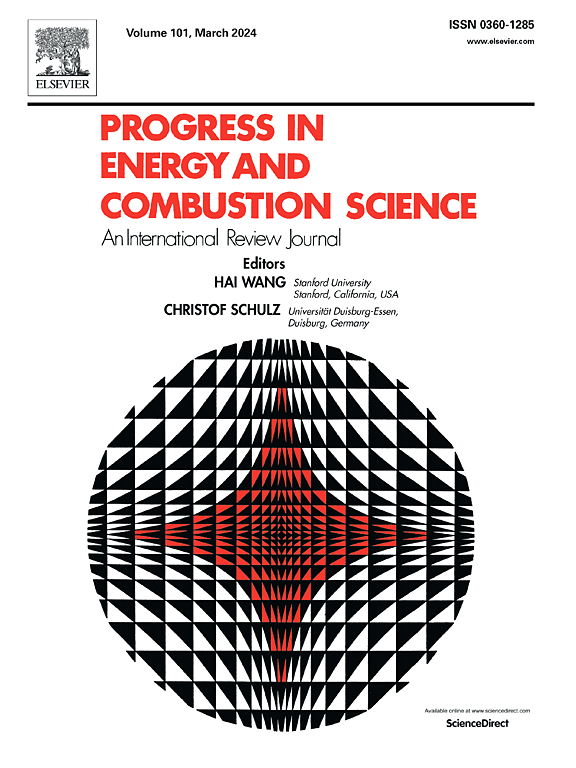野外部署光伏组件的室外发光成像
IF 32
1区 工程技术
Q1 ENERGY & FUELS
引用次数: 5
摘要
太阳能光伏(PV)装置在过去十年中呈指数级增长,现在正处于为人类提供减缓加速的气候变化的最大机会的阶段。为了光伏能源的持续发展和成功,太阳能电站的可靠检测是一个重要的要求。这确保了设备的高质量,安全运行,并在尽可能长的工厂寿命内产生尽可能大的功率。现场部署的光伏组件的户外发光成像提供了无与伦比的保真度的模块图像数据,因此是评估现场部署的光伏组件的质量、缺陷类型和退化状态的金标准。已经开发了几种发光成像方法,其中一些已经常规用于检查太阳能发电厂。要使用的首选发光检测方法取决于所需的图像分辨率、需要识别的缺陷类型、成本、检测吞吐量、技术成熟度和其他因素。由于发光成像测量和现代图像分析方法提供了丰富而详细的信息,发光成像正在成为光伏电站光伏组件质量保证的越来越重要的工具。户外发光成像可以为太阳能发电厂的调试、运行和评估做出有价值的贡献,在改变所有权之前或在恶劣天气事件之后。这些技术的另一个日益重要的用途是对太阳能组件进行具有成本效益的寿命结束评估,以实现可持续的循环经济。本文章由计算机程序翻译,如有差异,请以英文原文为准。
Outdoor luminescence imaging of field-deployed PV modules
Solar photovoltaic (PV) installations have increased exponentially over the last decade and are now at a stage where they provide humanity with the greatest opportunity to mitigate accelerating climate change. For the continued growth and success of PV energy the reliable inspection of solar power plants is an important requirement. This ensures the installations are of high quality, safe to operate, and produce the maximum possible power for the longest possible plant life. Outdoor luminescence imaging of field-deployed PV modules provides module image data with unparalleled fidelity and is therefore the gold standard for assessing the quality, defect types, and degradation state of field-deployed PV modules. Several luminescence imaging methods have been developed and some of them are already routinely used to inspect solar power plants. The preferred luminescence inspection method to be used depends on the required image resolution, the defect types that need to be identified, cost, inspection throughput, technological readiness, and other factors. Due to the rich and detailed information provided by luminescence imaging measurements and modern image analysis methods, luminescence imaging is becoming an increasingly important tool for PV module quality assurance in PV power plants. Outdoor luminescence imaging can make valuable contributions to the commissioning, operation, and assessment of solar power plants prior to a change of ownership or after severe weather events. Another increasingly important use of these technologies is the cost-effective end-of-life assessment of solar modules to enable a sustainable circular economy.
求助全文
通过发布文献求助,成功后即可免费获取论文全文。
去求助
来源期刊

Progress in Energy and Combustion Science
工程技术-工程:化工
CiteScore
59.30
自引率
0.70%
发文量
44
审稿时长
3 months
期刊介绍:
Progress in Energy and Combustion Science (PECS) publishes review articles covering all aspects of energy and combustion science. These articles offer a comprehensive, in-depth overview, evaluation, and discussion of specific topics. Given the importance of climate change and energy conservation, efficient combustion of fossil fuels and the development of sustainable energy systems are emphasized. Environmental protection requires limiting pollutants, including greenhouse gases, emitted from combustion and other energy-intensive systems. Additionally, combustion plays a vital role in process technology and materials science.
PECS features articles authored by internationally recognized experts in combustion, flames, fuel science and technology, and sustainable energy solutions. Each volume includes specially commissioned review articles providing orderly and concise surveys and scientific discussions on various aspects of combustion and energy. While not overly lengthy, these articles allow authors to thoroughly and comprehensively explore their subjects. They serve as valuable resources for researchers seeking knowledge beyond their own fields and for students and engineers in government and industrial research seeking comprehensive reviews and practical solutions.
 求助内容:
求助内容: 应助结果提醒方式:
应助结果提醒方式:


